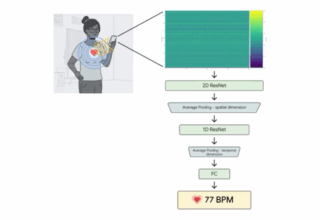Syrian rebel groups launched a new offensive against government forces on Monday and some accused the United Nations of bias, imperilling peace talks already threatened by fighting.
The opposition’s coordinator at the Geneva talks said it was unacceptable for negotiations to go on if the government and its allies pushed on with sieges and bombing civilian areas, echoing recent criticism of government offensives elsewhere.
Both sides have accused one another of breaking a Feb. 27 partial truce deal, which does not include Islamic State or al Qaeda’s Nusra Front and which began to unravel as fighting escalated near Syria’s second city Aleppo this month.
On Monday, rebels launched a fierce attack against Syrian government forces in Latakia province, which lies on the Mediterranean coast, and made separate advances further east in Hama, while there were heavy government air strikes in Homs province to the south.
Rebel groups early in the day announced a new battle against government forces which they said was in response to ceasefire violations.
The Latakia and Hama assaults appeared to be that battle, with some of the groups that made the announcement involved in the fighting, the Syrian Observatory for Human Rights monitoring group said. A Syrian military source confirmed intense fighting in the area.
“Today they attacked in the northern Latakia countryside in several areas, in violation of the cessation of hostilities agreement, and also in the northwestern Hama countryside,” the military source said.
The Observatory reported that in northern Homs province heavy government air strikes killed four people, and said the death toll was expected to rise, with more people wounded.
Mohamad al-Shamsi, a doctor in the Homs area, told Reuters there had been at least 10 air raids from early morning on Rastan and nearby Deir Foul and al-Houla. Schools had been evacuated and hospitals shut.
Groups including factions fighting under the banner of the Free Syrian Army and powerful Islamist Ahrar al-Sham, said in their battle announcement that they would respond “with force” against any government forces that fired on civilians.
They announced the “formation of a joint operations room to begin the battle … in response to violations by the army”.
Senior opposition figures who have asked not to be quoted have said pressure is growing for a speedy decision to leave talks being convened by U.N. envoy Staffan de Mistura in Geneva, with no sign of progress towards discussion of a political transition sought by President Bashar al-Assad’s opponents.
The Geneva talks aim to end a war that has killed more than 250,000 people, created the world’s worst refugee crisis, and allowed for the rise of the Islamic State group. Russia’s intervention in the conflict swayed the war in Assad’s favour.
A letter signed by unspecified “armed revolutionary factions” urged negotiators to “take firm and decisive stances towards the half-solutions being propagated … by the regime’s allies, and de Mistura”.
It also said international pledges to deliver aid, halt the bombing of residential areas and free prisoners had not been met. “We follow with great concern and outright rejection the moves of de Mistura, some of which show a total bias towards … the demands of the regime and its allies,” the letter said.
ROLE OF ASSAD
In a meeting with the main opposition High Negotiations Committee on Friday, de Mistura mentioned the idea of Assad remaining in power symbolically in exchange for the opposition’s nomination of three Syrian vice-presidents.
Diplomats and opposition officials sought to play down the comment, saying it was not de Mistura’s idea but rather one of several, from unidentified experts and not considered serious. It was subsequently dismissed outright by the opposition.
But the mere suggestion of Assad staying in power has further distracted from the crux of the talks.
With both sides already trading barbs in Geneva and fighting escalating anew in Syria, the focus appears to be shifting to simply keeping the opposition at the table rather than entering into substantive debate on transition.
“The opposition is split 50:50 on whether to stay or go,” said a senior Western diplomat.
“We’re telling them that they must not fall into the government’s trap because if they walk away, they will be held responsible and it will be difficult to return soon.”
The opposition says Assad must leave power and cannot be part of any transitional period.
Assad has rejected the idea of a transitional governing body, saying instead he could broaden the government to include what he described as opposition and independent figures.
On Monday the chief Syrian government negotiator Bashar Ja’afari told reporters he had exchanged ideas with de Mistura on “important issues” but did not take questions or make any mention of a political transition.
“The transitional government will be a difficult task for both the government and the opposition parties,” Chinese special envoy Xie Xiaoyan told reporters. “But that doesn’t mean they should … leave the discussion and go back to the battleground.”
[Source:- Reauters]


















